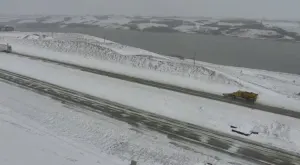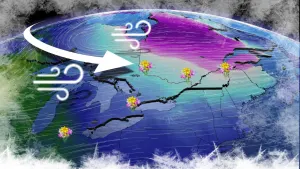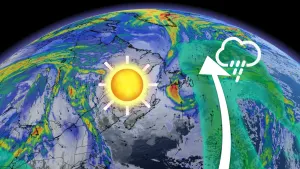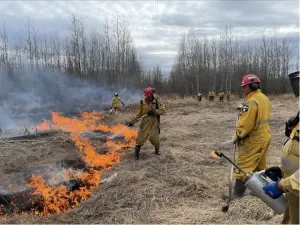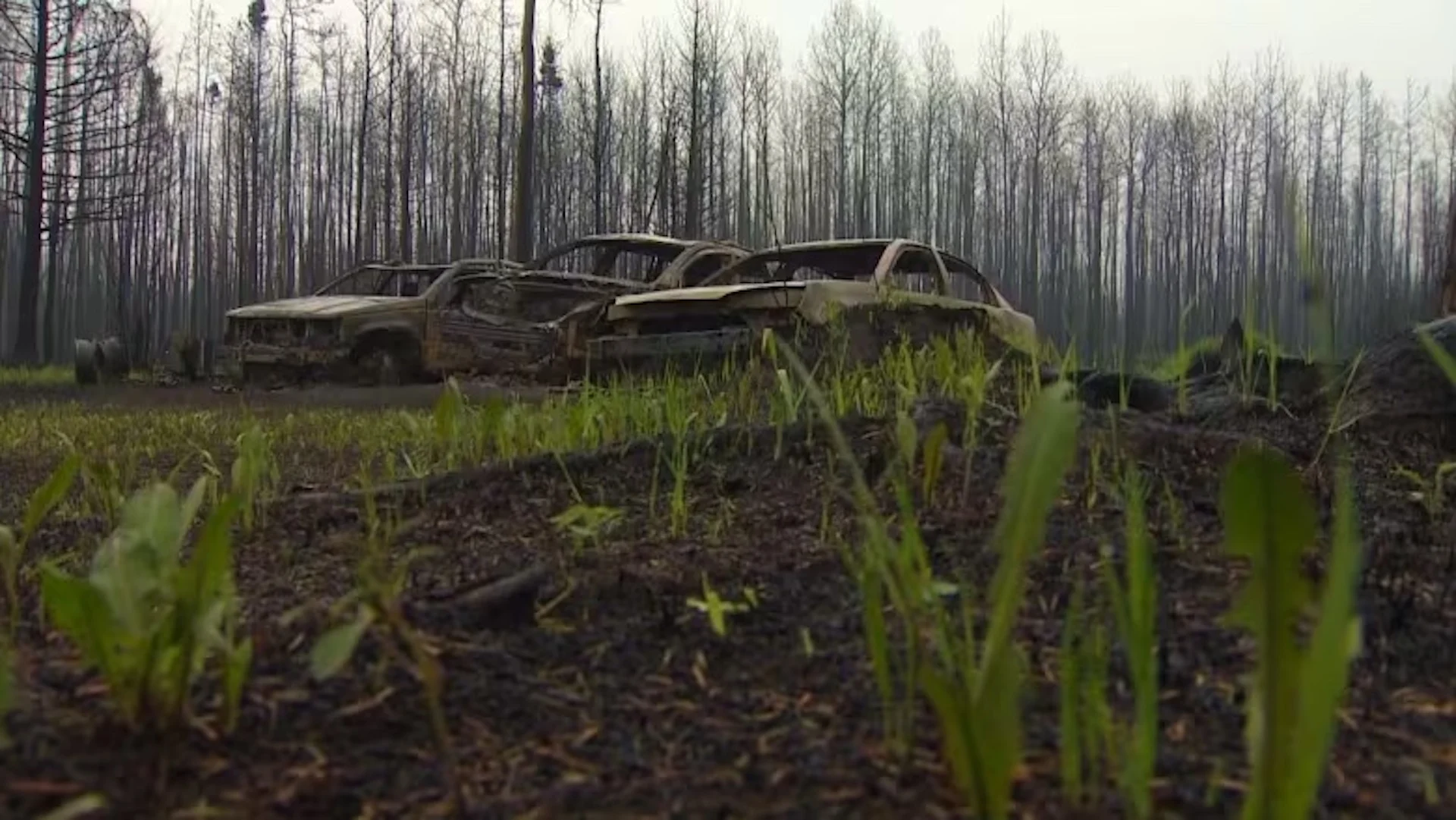
Rainy conditions continue to help firefighters in Alberta wildfire battle
More than one million hectares of land in Alberta are now estimated to have burned in a record-breaking spring for wildfires.
As of Tuesday afternoon, 74 wildfires were burning across the province. In Alberta's forest protection zones, there were 71 wildfires — about 10 fewer than listed on Monday. Of these, 20 are still considered out of control.
At a news conference, Alberta Wildfire information unit manager Christie Tucker said cooler temperatures and continued rain showers have dampened wildfire behaviour.
Visit The Weather Network's wildfire hub to keep up with the latest on the active start to wildfire season across Western Canada.
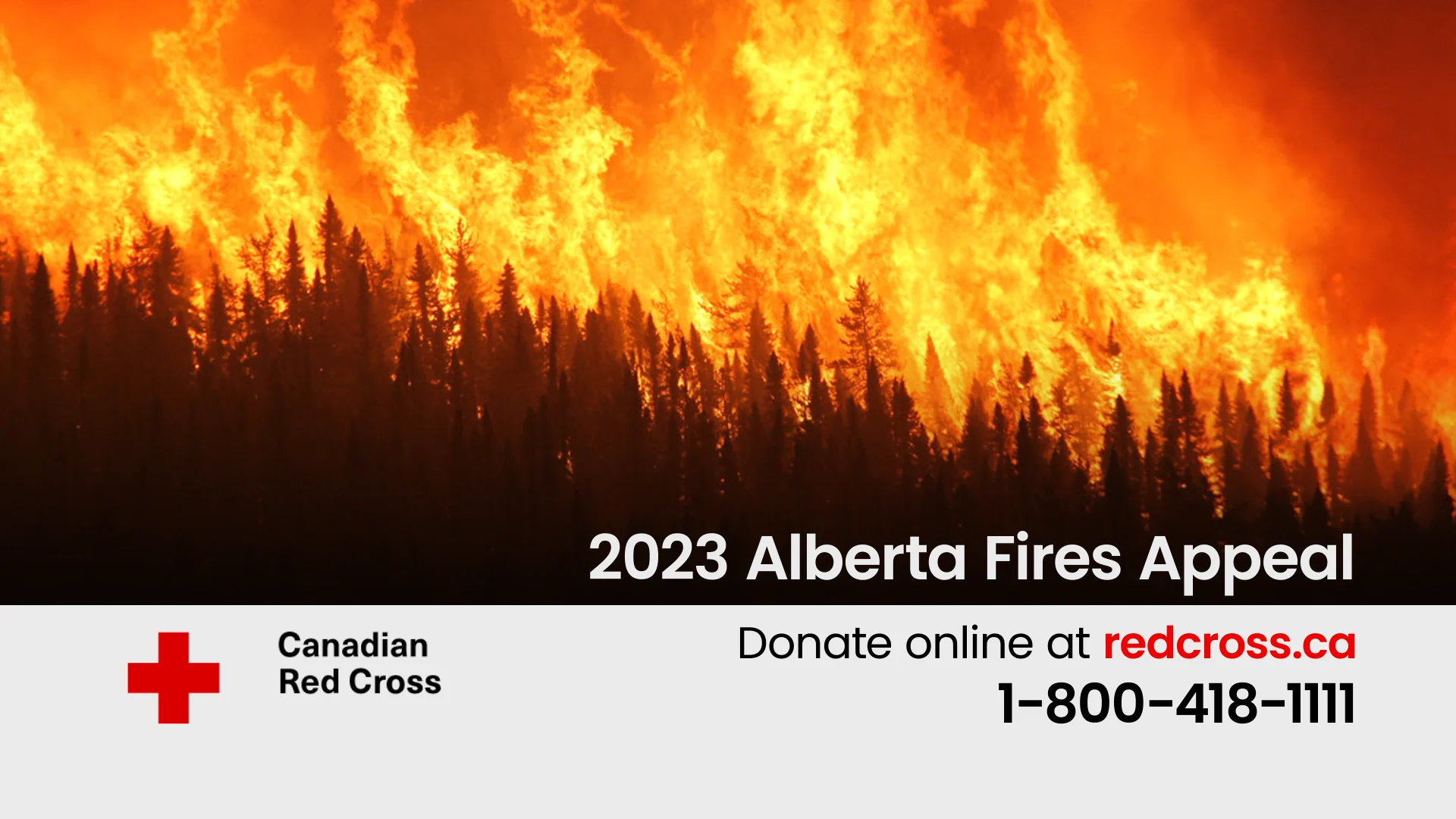
"Many of the major wildfires burning received some rain, which means these are good days for firefighters to make real progress on containing these fires."
But Tucker indicated that the province must be prepared for a longer engagement.
"Even though we have made headway on many wildfires on the landscape, we know that the season is far from over."
Alberta continues to bring assistance from outside the province, including 96 firefighters from the United States arriving Wednesday and a team from Parks Canada that arrived Tuesday.
Tucker said additional firefighters from New Zealand and Australia are also expected to arrive soon.
This is now the second-worst wildfire season — which runs until October — on record, Tucker said. The previous record was set in 1981, when 1.3 million hectares burned.
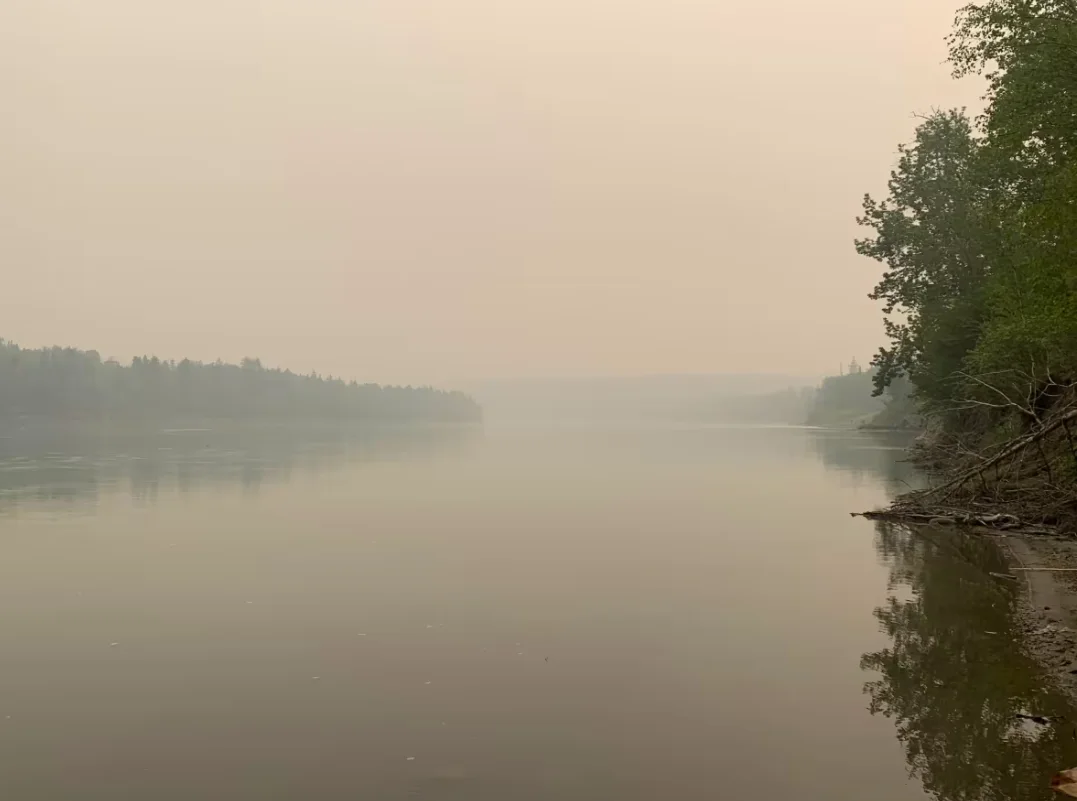
Smoke blankets the North Saskatchewan River in Edmonton on May 20, 2023. (Paige Parsons/CBC)
By this time last year, wildfires had burned only 450 hectares.
Sturgeon Lake complex being held
Tucker said firefighting efforts on the Sturgeon Lake complex near the Sturgeon Lake Cree Nation and Valleyview had been reclassified from out of control to being held, meaning it isn't expected to grow beyond its current boundaries.
The complex, made up of two fires, is estimated to be nearly 10,000 hectares.
Around 10,000 Albertans are still waiting to return to their homes as 15 evacuation orders remain in place.
RELATED: Alberta closes 12 provincial parks due to risk of wildfires over long weekend
That includes the Municipal District of Greenview, where residents of Fox Creek and Little Smoky still can't go home. The eagle complex, now estimated at around 125,000 hectares, forced the evacuation from some areas more than two weeks ago.
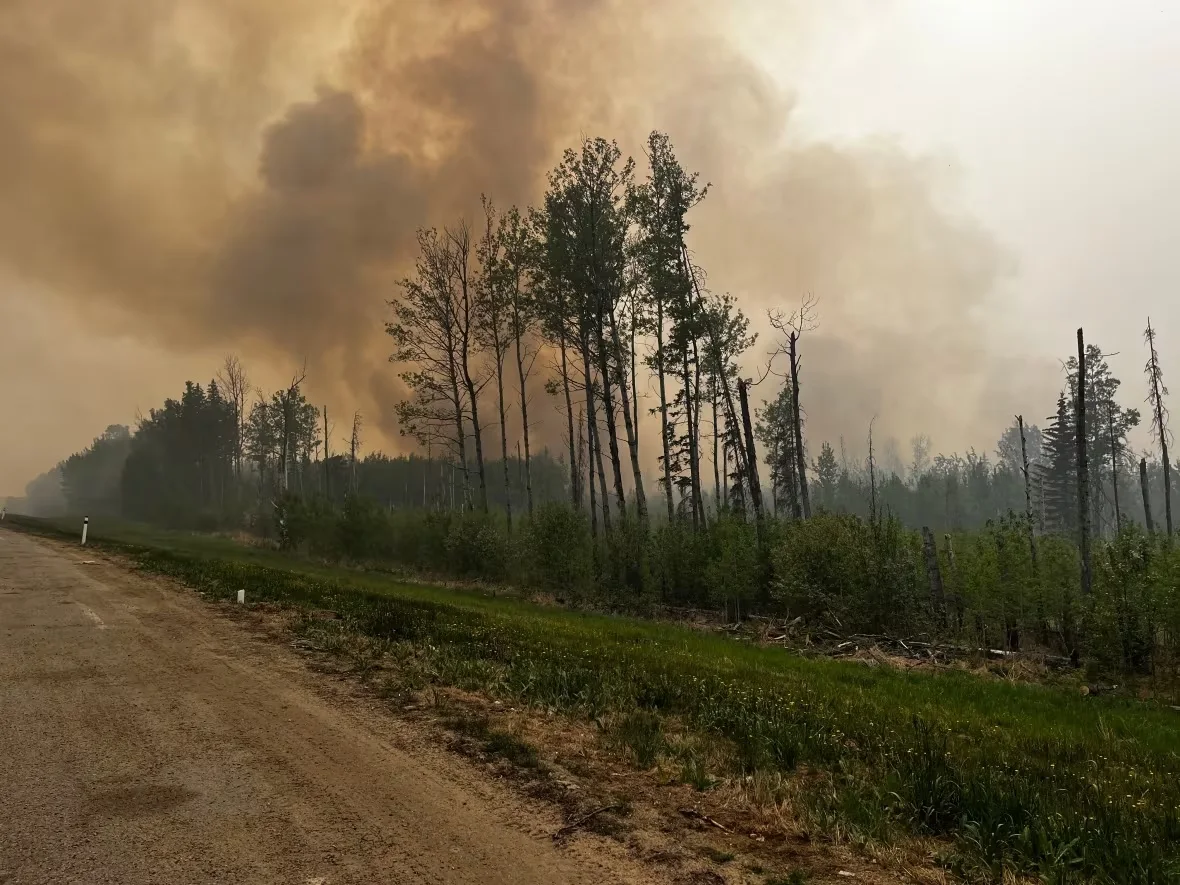
Wildfire smoke rises above a forest by Highway 33, north of the Town of Swan Hills. (François Joly/Radio-Canada)
Tucker said it's understandable that some people are frustrated and anxious to return home.
"But fighting fire is not something that will change overnight — particularly when you're dealing with a large-scale fire like this one," she said.
"What we can do is fight the fire to the best of our ability."
Environment and Climate Change Canada has issued rainfall warnings for a large portion of western Alberta. Heavy rain with amounts of 50 to 75 mm is expected through until the middle of the week.
It warns heavy downpours can cause flash floods and water pooling on roads as well as reduced visibility while driving.
Meanwhile, a special air quality statement remains in place for much of central and northern Alberta but no longer applies to Edmonton and southern Alberta.
East Prairie Métis Settlement
Raymond Supernault, chair of the East Prairie Métis Settlement in northern Alberta, said he hopes the rain will be enough to help his community.
"Right now we are going to start to heal," he said in an interview Monday. Supernault said the big hurdle is getting power back on.
He praised the firefighters from the community who had put themselves in danger to save lives and homes. A video circulating online shows local firefighters running down a road with large flames dominating the forest line.
The settlement has seen 14 family homes destroyed, including where Jessica Big Charles lived with her partner and daughter.
WATCH: It's wildfire season, pack your 'grab-and-go' box with these items
Big Charles, who's lived in East Prairie her whole life, has been staying in a hotel in High Prairie for more than two weeks.
"We didn't even have time to grab anything important – pictures, nothing," she said Monday of the evacuation.
"We just had what we had on our backs."
Without fire insurance, she said the future was unforeseeable.
"I don't know if I'm going to get a new home or where I'm going to live or how I'm going to move forward."
DON'T MISS: How the vegetation is helping to spread wildfires in Alberta
Thumbnail image courtesy of Mike Symington/CBC.
This article, written by Stephen Cook, was originally published for CBC News. It contains files from Kayla Hounsell.






